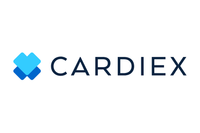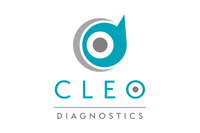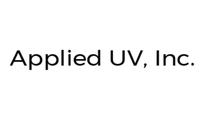How 2 TSXV Medical Device Stocks Power Collaborative Care
These TSXV medical device companies embody the broader trend to democratize healthcare. They also power a new approach to patient therapy: collaborative care.
When you talk wearable technology and downloadable apps, certain companies come to mind: Apple (NASDAQ:AAPL), Google (NASDAQ:GOOGL), maybe Microsoft (NASDAQ:MSFT). And certainly, those tech companies have long held a corner on this consumer market—but now, medical device manufacturers are moving in.
These days, medical devices encompass more than imaging machines or diagnostic assays, surgical tools or patient management software suites. Companies are not just making products for physicians to use or recommend.
Instead, they’re marketing directly to the consumer, developing products that can help patients take control of their health and responsibility over their own care or treatment plan.
And they’re doing it with products that are already familiar to most consumers: wearable tech and mobile apps. The revolution is known as mHealth—and it’s transforming the medical device industry.
TSXV medical device stocks
We took a look at the TSX Venture Exchange, the site of so much innovation, to see which medical device manufacturers are bucking tradition and marketing straight to the consumer. Who is leading the charge when it comes to mHealth?
Two standouts? Reliq Health Technologies (TSXV:RHT) and Eyecarrot Innovations (TSXV:EYC).
These companies embody a new approach to the medical device market and reflect the broader trend to “democratize” healthcare. Here’s how.
Reliq Health Technologies and medication management
Based in Vancouver, BC, Reliq Health Technologies develops secure mobile software solutions for at-home, independent patient care, designed to minimize hospital readmissions or emergency visits.
Their subsidiary, iUGO Health, has developed wearable and voice technology, paired with sensors and mobile apps, to facilitate patient care at home. There is an app for medication management, for example, which helps patients to schedule various drug doses, plus remember when—and how—to take them. Visual and audio alerts, sent directly to the patient’s mobile device, mitigate the chance of missing a medication.
The platform loops in the patient’s family, friends and healthcare providers, providing extra security and peace of mind. At the same time, it allows every patient—even those who are very sick—to retain their independence and dignity.
“Their enabling technology will redefine the industry and enhance patient connectivity,” says Henry Long, an Investment Officer with the British Consulate in Toronto. The key word there? Enabling. Reliq Health empowers patients, plain and simple.
Eyecarrot Innovations and vision therapy
Then there’s Eyecarrot Innovations. This company strikes us as visionary, in more ways than one. Their technology helps to treat failing eyesight, but does so in a particularly patient-centric way: their Binovi Coach app, for example, allows vision-impaired individuals the freedom and flexibility to do vision therapy activities wherever, whenever.
The app includes expert tutorials to guide patients through each exercise and allows them to track their progress through their own personalized care program.
Maybe that’s why Eyecarrot Innovations was nominated for Singularity University’s Exponential Medicine MEDy Awards, which recognize businesses for their work on revolutionary, game-changing healthcare solutions. Or why they won the Best in Show award by DLA Piper at Cantech 2016.
A new kind of healthcare
These companies—and others like them—are participating in a greater trend to “democratize” healthcare—that is, to make the field accessible to everyone, rather than just those with specialized knowledge.
We’ve already seen that change sweep the genetics industry, with plenty of companies selling DNA tests directly to the customer. Now, it’s gaining traction in the medical device market.
But this technology—and the whole mHealth movement—is not just about empowering the patient. Eyecarrot Innovations and Reliq Health both enable something called “collaborative” or “community” care, which means involving a whole team in the therapeutic process: physicians, caretakers and yes, the patient themself.
There will always be a need for more traditional medical device manufacturers, which develop products solely for use by trained healthcare professionals. But investors should consider alternative opportunities as well.
Medical devices that empower patients and facilitate collaborative care are a growing market—and one investors may want to enter early.
Don’t forget to follow us @INN_LifeScience for real-time news updates.
Securities Disclosure: I, Chelsea Pratt, hold no direct investment interest in any company mentioned in this article.
Editorial Disclosure: Eyecarrot Innovations is a client of the Investing News Network. This article is not paid-for content.



